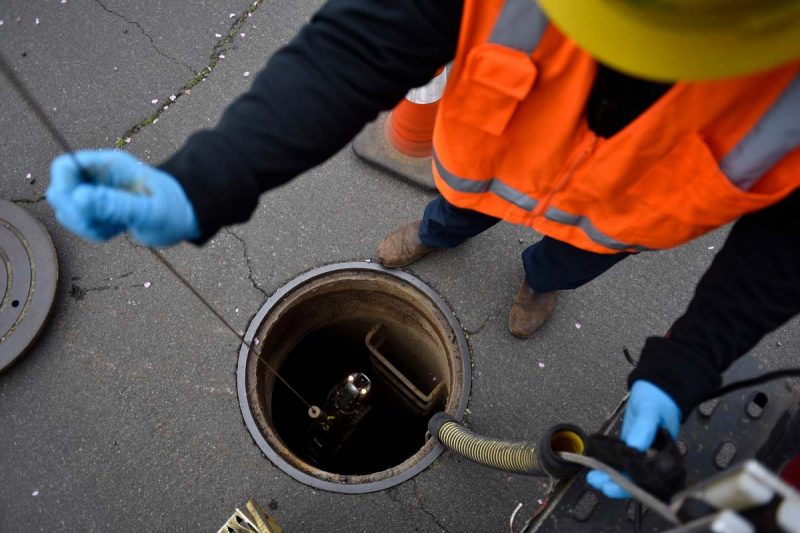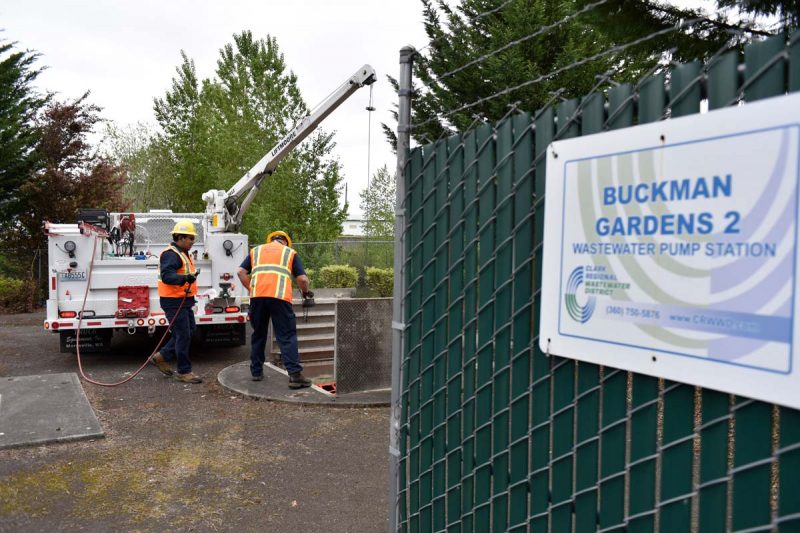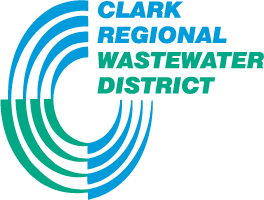Our Services
Administration Department
The Administration department provides administrative support to the Board of Commissioners, management and all departments. The department, led by the General Manager and Assistant Manager, also includes the Human Resources/Risk Management Director, the Business Services Manager, and the five Administrative Assistant support staff.

Board of Commissioners Administrative Support
Board support is provided by administrative staff to ensure all applicable laws and regulations for open public meetings are adhered to and ensure effective and efficient due process for all individuals, organizations and businesses that seek to appear before the Board at their regularly scheduled meetings.
Management and Departments
Management and departmental support of District functions. Ensures implementation of the policies and directives as provided by the Board. Overall management oversight of all operations, intergovernmental coordination with partner agencies, Clark County and other jurisdictions. Administrative support of regional wastewater programs and the development and implementation of key documents, presentations and initiatives. Information management and telecommunication support for the District
Human Resources
Administration of the human resources program includes employment, compensation/classification, employee relations, training and employee development, personnel record management, personnel policy, procedure development, legal compliance and internal consulting.
Risk Management
Ensure District compliance with all applicable laws, ordinances, policies and guidelines concerning safety, health and employment. Administer risk management program activities, including general liability insurance and claims processing, risk assessment and mitigation strategies and the design, development and implementation of District safety programs and procedures in accordance with WISHA and OSHA standards.
Business Management
Managing the business operations of the District. Ensures implementation of the policies and directives as provided by the Board. Provides for overall management and oversight of all operations, intergovernmental coordination with partner agencies, Clark County and other jurisdictions. Also provides administrative support of regional wastewater programs, acting as administrative lead for the Discovery Clean Water Alliance, Responsible for the development and implementation of key documents, presentations and initiatives as well as information management and telecommunication support for the District.
Engineering Department
The Engineering department provides full-service engineering to the District and our customers under the direction of a licensed professional engineer. These services include:
- annexation process management
- development review
- capital facility planning
- full Geographic Information System (GIS) services
- capital program management (design, inspection services and construction management) septic elimination program
- industrial pretreatment program oversight
- capital program oversight of the Salmon Creek Wastewater Management System (SCWMS)
Available Publications
The following publications are available for download (Note: These documents are very large files):
Annexation Process Management
The Engineering department oversees the “annexation” process for the District. Annexation is the formal process by which the District expands its service area, administered in accordance with RCW 57.24. In the County’s 2007 Comprehensive Plan update, the District was designated the service provider to roughly nine (9) new square miles of urban growth area. Generally expanded via the petition method of annexation, at the request of property owners, the District has annexed approximately half of the expanded urban growth area through year end 2010.
Development Review
The Engineering department provides assistance for new development, current customers and existing homes in need of sewer service. In addition, property owners obtain record drawing information for assistance in locating their existing system for connection.
Capital Facility Planning
Planning within the District is a two-part process initiated with long-range planning and followed by sub-basin planning. Long-range basin planning is performed to develop a 20-year General Sewer Plan to address the infrastructure needs to support urban incorporation by the County. The District’s General Sewer Plan was updated in 2006, concurrent with the County update to their Comprehensive Plan, formally adopted in 2007. In compliance with requirements of the Growth Management Act, the District updates its General Sewer Plan every 6 years. The General Sewer Plan provides a summary of the capital improvement projects and the associated costs for the planning period. More detailed sub-basin planning is performed within the framework of the General Sewer Plan to identify the means and methods of extending service to individual parcels.
Geographic Information System (GIS)
The District maintains a state-of-the-art computer mapping, archiving and analysis system. The GIS platform is used in support of engineering, finance and maintenance functions at the District. The mapping system covers the entire service area and is used extensively for customer service, planning, design and decision making support. GIS is also an integral part of the District’s maintenance management system (MMS).

Capital Program – Design, Inspection Services & Construction Management
The District administers an active Capital Program, supporting the efficient expansion and maintenance of the sanitary sewer collection system. The Capital Program provides in-house services in support of developing and delivering Local Facilities and General Facilities projects, new capacity/infrastructure and Restoration & Replacement (R&R) projects. District staff designs small to intermediate projects internally for bid and construction and utilizes professional consultants for technical expertise on large or complex projects. District staff provides construction management and inspections for the majority of development and District projects, utilizing consultant services for large or complex projects. All work is performed under the direction of a licensed professional engineer.
The District initiated a process in 2010 to combine GIS analysis with the maintenance management system (MMS) data to produce an R&R program that identifies sewer pipes that are in the worst condition and likely to cause the greatest environmental harm if failure occurred. By identifying critical infrastructure that has high probability of failure (poor condition); the District can focus capital expenditures more effectively. The 2012 budget will begin to reflect projects identified by this new process.
Septic Elimination Program
In 2008, the District set the tone for future years in working towards its vision of partnerships to protect water resources in the District’s service area. The District formally established a Septic Elimination Program (SEP). The first project of the program was initiated in 2008 and constructed in 2009. The inaugural SEP project extended service to 94 residences in the Sunnyside neighborhood, facilitating the improvement to water quality in creeks and tributaries running adjacent to Salmon Creek. The first homes connected to sewer and abandoned their septic systems in the fall of 2009, with 10 homes currently connected. In 2011, the District will continue to utilize the SEP by combining a SEP project with an R&R project to replace a failing pump station with a new gravity sewer system. The SEP project will make sewer service available for 14 homes in the affected area.
The District also continues to work closely with the Clark County Public Health Department to provide sewer service for customers who are faced with the removal of their failing septic systems through other “Local Facilities” programs (i.e. Customer Generated Infrastructure and District Installed Infrastructure).
Pretreatment Program
The District operates the state-mandated industrial pretreatment program (IPP) for the Salmon Creek Wastewater Management system. By agreement, the District operates the program within the unincorporated areas of Clark County and within the City of Battle Ground. This includes full pretreatment responsibility within the District system of sewers, as well as compliance sampling at the Salmon Creek Treatment Plant and pretreatment review at the City of Battle Ground. The District performs pretreatment surveys, mandated inspections of both private and public commercial and industrial facilities and produces a required yearly compliance report.
In 2010, District staff initiated a pretreatment program for the City of Ridgefield and provided pretreatment inspection training to their staff.
SCWMS Capital Program
The SCWMS Capital Program, a component of the Engineering department, acts under contract on behalf of the jurisdictions of the Clark Regional Wastewater District, Clark County and the City of Battle Ground, to oversee capital improvement projects within the Salmon Creek Wastewater Management System. The program involves oversight of planning, permitting, financing, engineering and construction for major planned expansions and improvements to the system. Visit the SCWMS website to learn more.
Finance Department
The Finance department provides a wide range of services for the District and our customers as follows:
- customer service
- accounting, treasury
- budget/forecasting
- application system development
Available Publications
The following publications are available for download:
Customer Service
Finance considers customer service an ongoing improvement process driven by the desire to provide the same level of service that we would expect as customers. During 2023, Finance processed over 24,000 telephone calls and billed over 187,000 customers, including 53,000 e-bills, while managing approximately 600 monthly, high-resource customers.
Accounting
The department maintains the financial records of the District in compliance with state and federal regulations. Core accounting functions provided by Finance include payroll, accounts payable, project accounting, accounts receivable, contract receivables and maintaining the general ledger. Various reports, such as the Comprehensive Annual Financial Report, management financials and other audit and bond compliance statements are prepared monthly, quarterly and annually. The District has been awarded the Certificate of Achievement for Excellence in Financial Reporting for the last 41 years and strives to continue this great accomplishment.
Treasury
The primary responsibility and goal of the treasury function is to ensure the financial resources of the District are safeguarded and the District’s cash reserves are invested in a safe and prudent manner. This is accomplished through issuing and defeasing debt when rates are favorable in an effort to provide the lowest cost to our ratepayers. In addition, the assets and cash transactions are secured by enhancing internal controls and improving business processes, like the recording of assessments, liens and the satisfaction thereof.
Budget/Forecasting
The District utilizes statistical five-year revenue forecasts and the assumptions used in the preparation of the forecast to ensure adequate revenues are available for necessary operational and capital expenditures. The budget is a piece of the five-year forecast in that it is developed from the compiled statistical information and considers the needs of each department to develop the operating budget. Budget preparation also necessitates internal coordination and facilitation of the capital project information with Engineering to determine how future projects will affect the Capital Improvement Projects account as well as the Replacement and Restoration account. The District Management team also provides input as the budget is prepared and presented to the Board of Commissioners for their review and adoption.
Operations & Maintenance Department
The Maintenance department provides the following maintenance services for the District: mainline maintenance, pump station maintenance, STEP (Septic Tank Effluent Pumping) system maintenance, engineering assistance, facility maintenance and fleet management maintenance. The department also participates as an advisor in various line maintenance challenges that occur with our customers and other governmental agencies. The Maintenance department also has interlocal agreements with four other government agencies in Clark County to provide collection system cleaning and closed circuit television inspection (CCTV).
Mainline Maintenance
Cleaning and closed-circuit television inspection (CCTV) of over 775 miles of gravity and pressure pipe. CCTV uses specialized audio-video equipment to inspect the inside of pipelines and identify defects or problem areas in the lines. Then, the lines are routinely cleaned using high-velocity water cleaning (HVC) with a vacuum system for debris removal, along with specialized cleaning processes such as mechanical root cutting and chemical root treatments. Maintenance also identifies lines that have potentially higher levels of grease and debris and accelerates the cleaning frequencies for grease removal in those areas.
Pump Station Operation and Maintenance
Operation and maintenance of 77 sewer-pumping stations. Force main maintenance is also part of the pump station maintenance program. The pump station SCADA (Supervisory Control and Data Acquisition) monitoring occurs 24 hours per day, 365 days a year. Current maintenance standards and practices include detailed tasks that are performed on a daily, weekly, monthly and annual basis. Detailed annual maintenance standards are documented in the department’s maintenance plan.

STEP System Maintenance
Maintain the functionality of the 870+ individual STEP systems. These systems are located in the satellite areas of Meadow Glade, Hockinson, Van Ridge and South Ridge, and each has an individual pumping system that pumps into a community force main (pressure pipe). The Maintenance department is responsible for the inspection of new construction systems in these areas, as well as maintenance, customer contact for property access and repairs of the existing STEP systems.
Facilities/Fleet Management
The Maintenance of the District’s administration and operation facilities, while outsourcing the repair and annual maintenance of District vehicles and equipment. Fleet management responsibilities include minor maintenance activities related to passenger vehicles, heavy equipment such as backhoes and dump trucks and other small construction and safety equipment.
Treatment Plant Operations
As of July 1, 2018, the District became the contract operator of the Ridgefield Treatment Plant. The treatment plant is a conventional activated sludge plant, rated at 0.7 million gallons per day (MGD), that receives average flows of roughly 0.3 MGD, or 300,000 gallons per day. Treatment plant processes are a combination of mechanical and biological actions that remove organic and inorganic materials from the flow stream. The finished products of the wastewater treatment process are water cleaned to exceeding acceptable limits monitored by the Washington State Department of Ecology (DOE) and the U.S. Environmental Protection Agency (EPA), and sludge that is transferred to the Salmon Creek Wastewater Treatment Facility for processing into Class ‘B’ biosolids suitable for land application by DOE and EPA standards. The treatment plant also utilizes the District Supervisory Control and Data Acquisition (SCADA) system for process monitoring and automated operations which prevent the need for 24-hours per day staffing requirements. The plant maintenance programs are managed within Lucity, a computerized Maintenance Management System (MMS).
